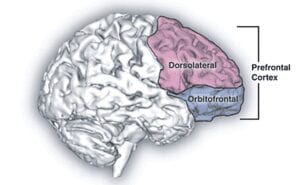
How Memory Is Lost
Yale University researchers can’t tell you where you left your car keys — but they can tell you why you can’t find them.
A new study published July 27 in the journal Nature shows the neural networks in the brains of the middle-aged and elderly have weaker connections and fire less robustly than in youthful ones. Intriguingly, the research suggests that this condition is reversible.
“Age-related cognitive deficits can have a serious impact on our lives in the Information Age as people often need higher cognitive functions to meet even basic needs, such as paying bills or accessing medical care,” said Amy Arnsten, Professor of Neurobiology and Psychology and a member of the Kavli Institute for Neuroscience. “These abilities are critical for maintaining demanding careers and being able to live independently as we grow older.”
As people age, they tend to forget things more often, are more easily distracted and disrupted by interference, and have greater difficulty with executive functions. While these age-related deficits have been known for many years, the cellular basis for these common cognitive difficulties has not been understood. The new study examined for the first time age-related changes in the activity of neurons in the prefrontal cortex (PFC), the area of the brain that is responsible for higher cognitive and executive functions.
Networks of neurons in the prefrontal cortex generate persistent firing to keep information “in mind” even in the absence of cues from the environment. This process is called “working memory,” and it allows us to recall information, such as where the car keys were left, even when that information must be constantly updated. This ability is the basis for abstract thought and reasoning, and is often called the “Mental Sketch Pad.” It is also essential for executive functions, such as multi-tasking, organizing, and inhibiting inappropriate thoughts and actions.








